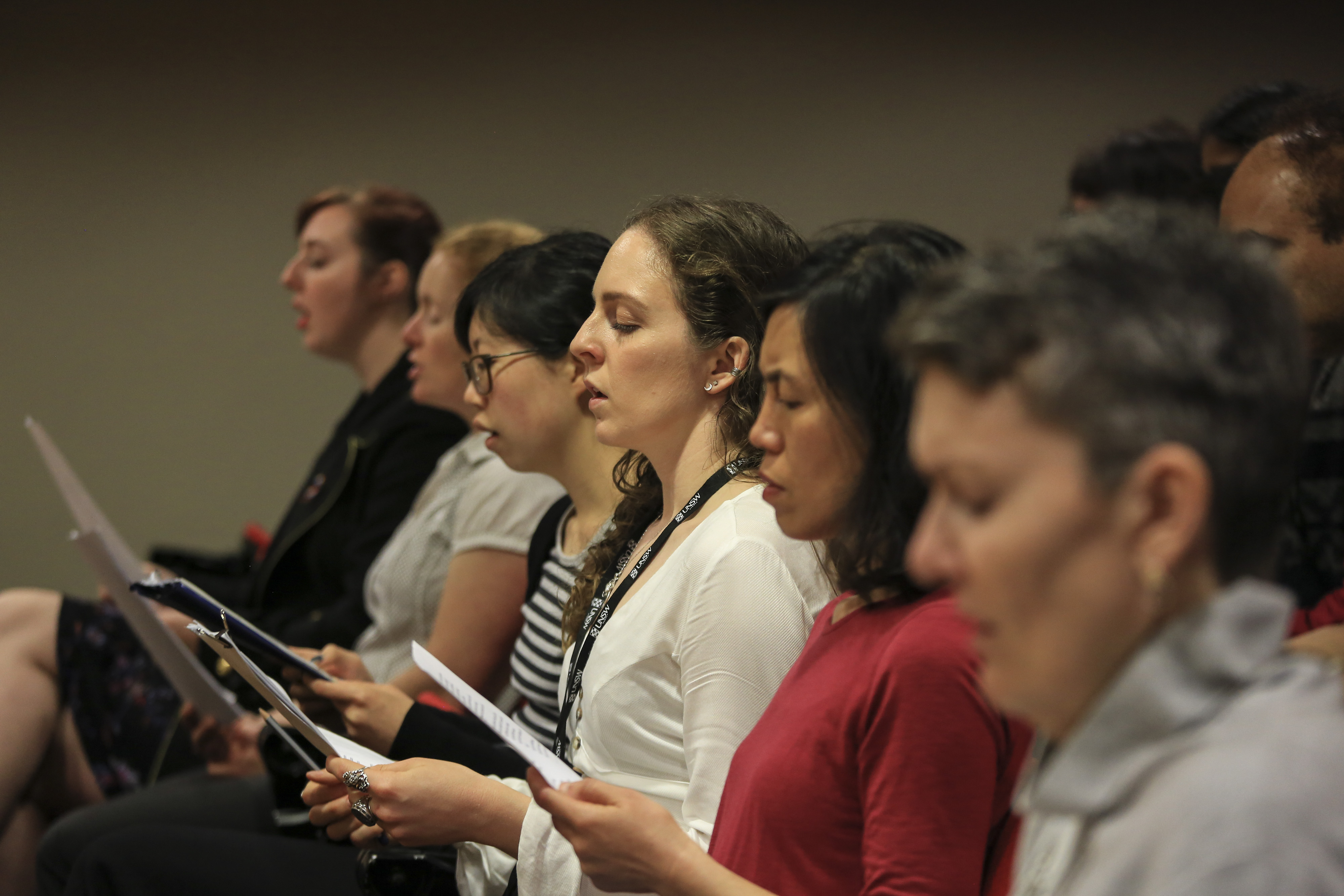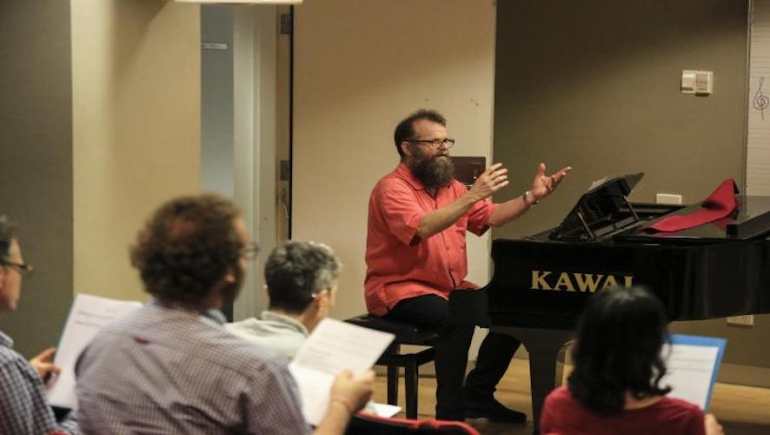By Josh Gibson
Seldom do we draw connections between human rights and music. For Dr John Napier however, this connection lies at the heart of his research. As an ethnomusicologist, John explores the relationship between music and anthropology to better understand the connections.
John has recently taken on the role of Choirmaster for the newly created Australian Human Rights Institute Choir, created with the aim of supporting staff health and happiness at UNSW Sydney. John brings a wealth of experience and knowledge to the choir, introducing new ways of thinking about music and human rights together.
Joining the School of Arts and Media at UNSW in 1995, John holds a strong belief that music has the power to bring different people together in unique ways. Trained as a classical musician, John pursued cello and voice at the Queensland Conservatorium. After a brief stint as an orchestral player, John moved to Sydney to begin participating in the lively refugee-driven Latin American music scene.
After meeting refugees who had fled the military dictatorship in Chile during the 1970s and 1980s, John became aware of how political refugees expressed their identities and experiences through music.
“Music for these people was a multi-factored thing - the one thing that was not important to them was the sort of classical excellence ‚ĶThey were trying to raise consciousness in a broad community and a sense of solidarity amongst themselves.”
John was inspired by different artists and artistic forms from around the world, such as well-known Chilean musician Victor Jara from the Nueva Canción movement, and Greek-French director Costa-Gavras. John became increasingly interested in how the identity of politically disenfranchised people was expressed through music, and how this music functioned as a grassroots resistance of cultural soft power.
“Music has that wonderful thing of being something you do together,” he says. “Music is linked to people’s sense of identity, some of our strongest memories are linked to music.”
Lyrically, the music was progressive and left-wing, often involving contextually specific sounds, such as the uniquely Latin American pan flute of the Andes. John highlights that it is not just the lyrics that are political, but also the sounds in the music itself.
“Resistance was in the lyrics, but the resistance was also in the musical sounds themselves.”

From John’s immersive experiences with refugee groups, he began understanding music’s crucial role in the process of healing traumas. Many if not most of these people had experienced complex trauma, both individually and collectively. From these difficult experiences was born the desire to reconnect and collectively heal through the process of making and performing music.
“One of the really powerful things about music is that it brings affect and feeling into that sharing of ideas, particularly when people are in a common space ‚Ķ political music stops you from feeling so alone,” he says.
“It gives you, not just an intellectual awareness that you’re not alone, but you feel not alone because you’re sharing this common space.”
However, John was also wary of the deeper emotional affect that this process of singing together had. He was very conscious that the musical process had the potential to re-traumatise.
“By singing music to console ourselves we often arouse in ourselves the very emotions that we need solace from.”
John advocates for people having a right to music and to express their own musicality.
“Musicality is an expression of who [people] actually are; what they share with their family, their community, their neighbours; and in another way, what distinguishes us from other groups of people, makes us strongly ourselves.”
John brings these interests of human rights back into the classroom at UNSW. From the early 2000s, John began teaching a course at UNSW on traditional Indigenous music. John is training his students to understand how sounds are recognised, and how identity and the self are encoded in these sounds.
In a world that often feels volatile, where human rights are so frequently violated, maybe we could all do with tapping into the collective and healing power of music, together.
“One of the curious things about this gig is that you actually sing this stuff hoping that there’ll be a day that you don’t have to sing this stuff.”
So, see you at choir?
Josh Gibson is a PhD Candidate with the Australian Human Rights Institute.
UNSW Sydney staff who would like to join the choir can get in touch by email: humanrights@unsw.edu.au
